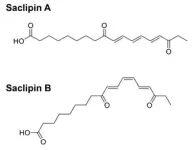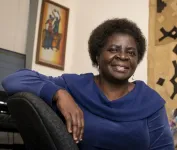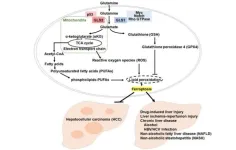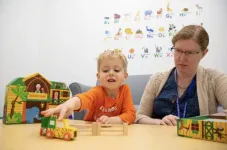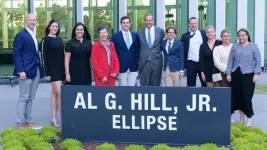(Press-News.org) RIVERSIDE, Calif. -- A study led by researchers in the School of Medicine at the University of California, Riverside, has found that in communities of color in Inland Southern California, historical, cultural, and social traumas induce fear and mistrust in public health and medical, scientific, and governmental institutions, which, in turn, influence these communities’ hesitation to get tested and vaccinated for COVID-19.
The study, published in Culture, Medicine, and Psychiatry, underscores the need for community-based health interventions that consider structural and social determinants of health to address such traumas experienced by racial/ethnic minority populations in the U.S.
From January to March 2021, the researchers, led by Ann Cheney, an associate professor of social medicine, population, and public health, conducted 11 virtual focus groups (5-10 people attended each focus group) who identified as Black/African American, Latinx/Indigenous Latin American, and/or Native American/Indigenous. Participants shared information on the cultural and structural factors that shaped their COVID-19 testing and vaccination.
“We found the intersection of historical, cultural, and social traumas contributed to fear and mistrust in institutions — government, medicine, and public health,” Cheney said. “These different levels of trauma intersect and shape decision-making around COVID-19 testing and vaccination in the current pandemic.”
Evelyn Vázquez, the first author of the research paper and a community psychologist, led the data analysis of the 11 focus groups and used the findings to develop a theoretical model, called the “Continuum of Trauma,” to show how the different types of trauma shape COVID-19-related decisions among disadvantaged populations. The model crosses temporal, cultural, and social spaces among communities of color.
“This model describes the shared grief, assault on collective identity, and marginalization among racial and ethnic minorities in Inland Southern California,” said Vázquez, an assistant professional researcher in the Department of Social Medicine, Population, and Public Health. “We found that collective experiences of trauma across the continuum have induced fear, hesitancy, and institutional mistrust among marginalized communities.”
Key findings from the focus groups:
All participants discussed historically based trauma as grounded in structural racism and histories of government and public health abuses.
Black/African American and Native American/Indigenous community participants talked about the U.S. government’s falsehoods and lies.
Latinx/Indigenous Latin American community members spoke about classism they faced, the loss of religious leaders during the pandemic, fear and mistrust in public health, and fear of job loss.
All participants shared how the COVID-19 pandemic affected their collective identity.
All participants found social trauma and racial- and income-based inequities were pronounced in the current pandemic.
Many faced job-related stress, childcare concerns, and housing inequities.
Many experienced discrimination in health-care settings.
Many distrusted government institutions, feared seeking medical care, and were reluctant to get tested and vaccinated for COVID-19.
“Trauma exists along a continuum and contributes during the COVID-19 pandemic to health disparities as well as fear and mistrust in institutions,” Vázquez said. “For collective healing, we need community-based approaches. For example, transformative interventions that impinge upon structural and social determinants of health can address the fear and mistrust of institutions.”
Vázquez explained that this fear and mistrust stem from historical trauma and colonizing practices in the history of medicine.
“Fear and mistrust are also linked to cruelty enacted by the U.S. government towards racial/ethnic minorities and loss of community elders and their knowledge,” she said.
Cheney stressed that interventions could transform three types of power in historically marginalized groups: political, economic, and social.
“Interventions can promote community-level health equity and freedom from trauma by promoting health education and literacy and providing access to community-based interventions developed by communities of color for communities of color,” she said. “To succeed, interventions must be culturally sensitive and responsive.”
Cheney and Vázquez were joined in the study by Michelle Burroughs of UCR, Preeti Juturu of UCLA, and Juliet McMullin of UC Irvine.
The research paper is titled “Continuum of Trauma: Fear and Mistrust of Institutions in Communities of Color During the COVID-19 Pandemic.”
The University of California, Riverside is a doctoral research university, a living laboratory for groundbreaking exploration of issues critical to Inland Southern California, the state and communities around the world. Reflecting California's diverse culture, UCR's enrollment is more than 26,000 students. The campus opened a medical school in 2013 and has reached the heart of the Coachella Valley by way of the UCR Palm Desert Center. The campus has an annual impact of more than $2.7 billion on the U.S. economy. To learn more, visit www.ucr.edu.
END
Communities of color experienced fear and mistrust of institutions during COVID-19 pandemic
UC Riverside-led study calls for culturally sensitive health interventions to address trauma
2023-10-19
ELSE PRESS RELEASES FROM THIS DATE:
Nail salon and other small beauty service workers face significant daily health challenges
2023-10-19
The beauty service microbusiness industry in the United States — such as the small, independently-owned nail salons found across the country — is huge, with more than $62 billion in annual sales.
However, most of the workers who provide these highly sought services are Asian female immigrants who earn very low wages. These workers face numerous workplace health challenges stemming from the chemicals they use, repetitive movements with handheld tools and awkward body posturing.
They also are reluctant to bring attention to these conditions due to factors such as possible immigration-related trauma, lack of English proficiency, ...
Pandemic prevention consortium announces new leadership team
2023-10-19
Recognizing the many milestones it has reached in recent months, Strategies to Prevent Spillover, or STOP Spillover, a project funded by the U.S. Agency for International Development (USAID) and led by Tufts University, has announced that the interim leadership team that was put in place in March 2023 will take on a permanent role for the next two years of the project.
Hellen Amuguni, an associate professor in the Department of Infectious Disease and Global Health at Cummings School of Veterinary Medicine, is the new project director. The co-deputy directors are Felicia Nutter, director of the International Veterinary ...
mRNA delivered by extracellular vesicles induces immunotherapy response in glioblastoma
2023-10-19
HOUSTON ― A team of researchers at The University of Texas MD Anderson Cancer Center has developed a new method for using extracellular vesicles to enhance responses to immunotherapy in glioblastoma, potentially opening the door for wider use of engineered messenger RNA (mRNA) for cancer therapy. The study was published today in Nature Communications.
Earlier this year, a team of researchers led by Betty Kim, M.D., Ph.D., and Wen Jiang, M.D., Ph.D.,developed a novel method for loading mRNA into extracellular vesicles, small structures created by cells to transport biomolecules and nucleic acids within ...
Point-of-care technology initiative awarded $8.9 million renewal
2023-10-19
UMass Chan and UMass Lowell’s point-of-care technology initiative awarded $8.9 million renewal
UMass Chan Medical School and UMass Lowell have received an $8.9 million award from the National Institutes of Health (NIH) for renewed support of their initiative to advance the development of home-based and point-of-care health technologies. The program aims to jumpstart new tools to address heart, lung, blood and sleep disorders, especially in underserved populations.
The Center for Advancing Point of Care Technologies ...
GLS2 shapes ferroptosis in hepatocellular carcinoma
2023-10-19
“[...] we hope that our findings will inform future decisions regarding treatment of liver disease.”
BUFFALO, NY- October 19, 2023 – A new editorial paper was published in Oncotarget's Volume 14 on October 19, 2023, entitled, “GLS2 shapes ferroptosis in hepatocellular carcinoma.”
In their new editorial, researchers Sawako Suzuki, Divya Venkatesh, Tomoaki Tanaka, and Carol Prives from Columbia University discuss ferroptosis regulation of GLS2 as a potential therapeutic strategy against liver diseases.
“More than a decade has passed since our group (1) as well as ...
Groundbreaking study on bilingual children with Developmental Language Disorder
2023-10-19
Amanda Owen Van Horne sits on the floor while a child mixes up cake batter in a play kitchen.
While at play, an intensive language therapy program is also underway for preschool-aged children with developmental language disorder (DLD) at the University of Delaware’s Treatment Efficacy and Learning Language (TELL) Lab. The child says, “Him cooking.” Owen Van Horne repeats back, “He is cooking.”
DLD is a problem with learning and using language not attributed to a hearing impairment or intellectual disability, according to DLD ...
The Trinity Family Foundation grants major gift to Center for BrainHealth to honor the memory of Al G. Hill, Jr.
2023-10-19
The Trinity Family Foundation has pledged a generous $4 million gift to the Center for BrainHealth to advance the science of brain health, in memory of Al G. Hill, Jr., a renowned Dallas entrepreneur and philanthropist.
The thoughtful investment will support burgeoning research at the Center for BrainHealth, focused on deepening our understanding of neuroplasticity – the brain’s lifelong ability to change, adapt, get stronger and work better.
In recognition and gratitude, the center’s ...
Research shows new documentation tool could help optimize seizure treatments in patients with epilepsy
2023-10-19
New research from the University of Colorado Anschutz Medical Campus studies a new tool that will help medical providers identify patients who are failing epilepsy treatments earlier in order to change treatment to rapidly optimize positive outcomes.
The study was published online today in Neurology® Clinical Practice, an official journal of the American Academy of Neurology.
The study was a quality improvement project that tested the implementation of an easy-to-use standardized electronic health record documentation tool, which dramatically improved the accuracy and completeness of important clinical documentation ...
Neuroscientists to reveal new insights into Alzheimer’s
2023-10-19
Dementia experts from UC San Francisco will join their peers from around the globe at the annual Clinical Trials on Alzheimer’s Disease (CTAD) conference in Boston from Oct. 24 to 27.
Presentations cover breakthroughs in therapies that clear amyloid – a hallmark of Alzheimer’s – and a symposium on patients with early Alzheimer’s symptoms who were treated with the anti-amyloid medication donanemab, which may be approved by the end of the year. Other topics include novel treatments, diagnostic blood biomarkers, amyloid-related imaging abnormalities (ARIA) and Medicare coverage.
This year’s ...
New study finds racial and ethnic disparities persist in access to chiropractic care and physical rehabilitation for adults with low back pain
2023-10-19
BOSTON - Low back pain is the leading cause of disability worldwide and a major driver of healthcare costs in the United States, according to the World Health Organization. Over the last 20 years, recommended treatment of low back pain has shifted from use of pain medications including opioids to early use of nonpharmacologic treatments such as spinal manipulation and therapeutic exercise which are commonly provided by chiropractors and physical therapists. However, while nearly all Americans will experience back pain at some point in their lives, most Americans ...
LAST 30 PRESS RELEASES:
A kaleidoscope of cosmic collisions: the new catalogue of gravitational signals from LIGO, Virgo and KAGRA
New catalog more than doubles the number of gravitational-wave detections made by LIGO, Virgo, and KAGRA observatories
Antifibrotic drug shows promise for premature ovarian insufficiency
Altered copper metabolism is a crucial factor in inflammatory bone diseases
Real-time imaging of microplastics in the body improves understanding of health risks
Reconstructing the world’s ant diversity in 3D
UMD entomologist helps bring the world’s ant diversity to life in 3D imagery
ESA’s Mars orbiters watch solar superstorm hit the Red Planet
The secret lives of catalysts: How microscopic networks power reactions
Molecular ‘catapult’ fires electrons at the limits of physics
Researcher finds evidence supporting sucrose can help manage painful procedures in infants
New study identifies key factors supporting indigenous well-being
Bureaucracy Index 2026: Business sector hit hardest
ECMWF’s portable global forecasting model OpenIFS now available for all
Yale study challenges notion that aging means decline, finds many older adults improve over time
Korean researchers enable early detection of brain disorders with a single drop of saliva!
Swipe right, but safer
Duke-NUS scientists identify more effective way to detect poultry viruses in live markets
Low-intensity treadmill exercise preconditioning mitigates post-stroke injury in mouse models
How moss helped solve a grave-robbing mystery
How much sleep do teens get? Six-seven hours.
Patients regain weight rapidly after stopping weight loss drugs – but still keep off a quarter of weight lost
GLP-1 diabetes drugs linked to reduced risk of addiction and substance-related death
Councils face industry legal threats for campaigns warning against wood burning stoves
GLP-1 medications get at the heart of addiction: study
Global trauma study highlights shared learning as interest in whole blood resurges
Almost a third of Gen Z men agree a wife should obey her husband
Trapping light on thermal photodetectors shatters speed records
New review highlights the future of tubular solid oxide fuel cells for clean energy systems
Pig farm ammonia pollution may indirectly accelerate climate warming, new study finds
[Press-News.org] Communities of color experienced fear and mistrust of institutions during COVID-19 pandemicUC Riverside-led study calls for culturally sensitive health interventions to address trauma

